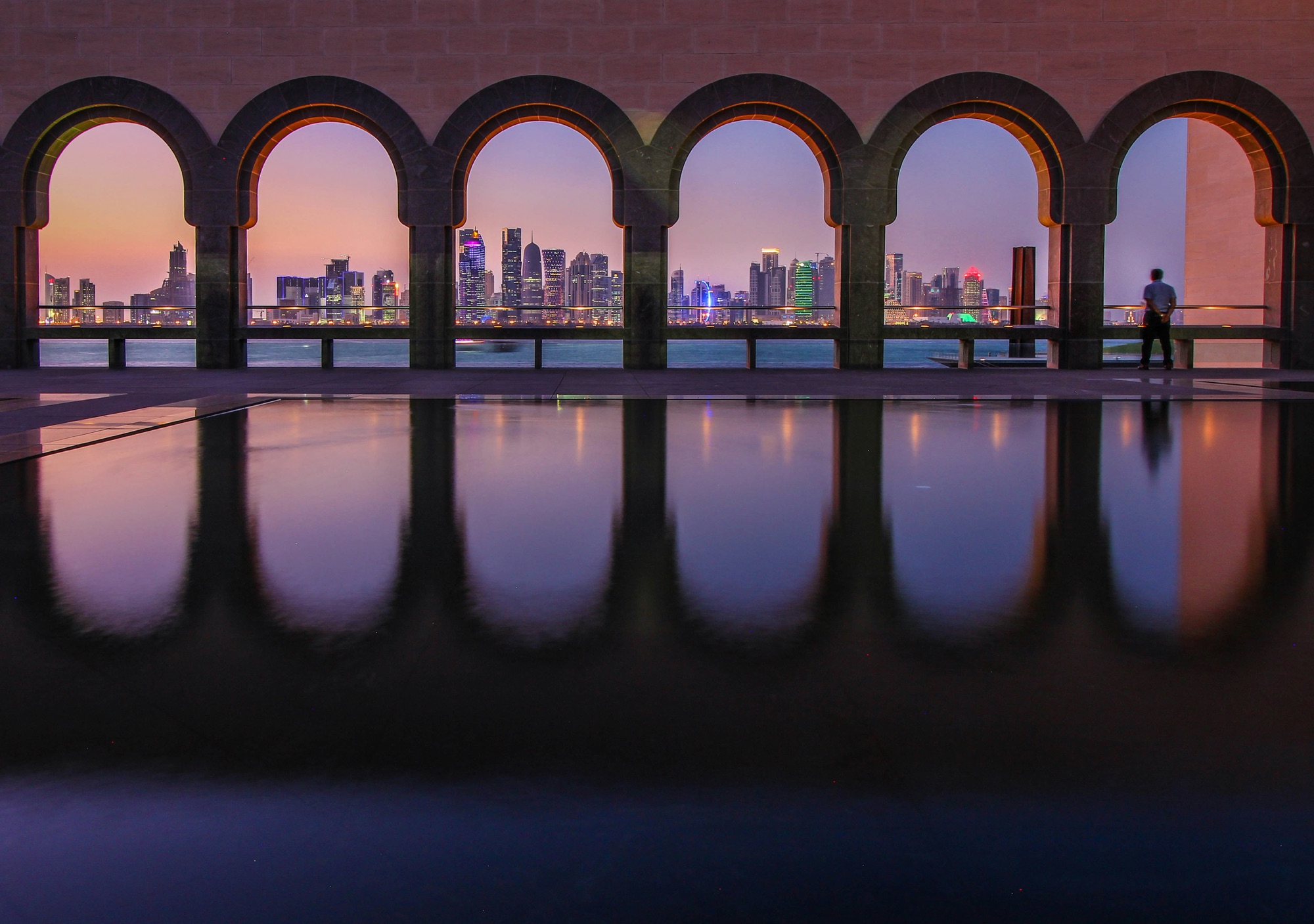Qatar, a small but incredibly wealthy nation on the Arabian Peninsula, is one of the richest countries in the world. Despite its small size and population of around 2.9 million people, Qatar boasts one of the highest GDPs per capita globally. Its wealth is not only derived from its vast natural resources but also from strategic investments, diversification efforts, and its role in the global energy market. In this article, we will explore the key factors contributing to Qatar’s immense wealth and its position as a global economic powerhouse.
1. Vast Natural Gas and Oil Reserves
Qatar’s wealth primarily comes from its enormous natural gas reserves and significant oil production. The discovery of oil in the 1940s and natural gas in the 1970s transformed the nation from a relatively poor and undeveloped country, reliant on fishing and pearling, into one of the richest nations in the world.
Natural Gas Dominance
Qatar is home to the world’s third-largest natural gas reserves, behind only Russia and Iran. The most significant source of Qatar’s natural gas wealth is the North Field, the largest non-associated gas field in the world. This offshore gas field holds approximately 900 trillion cubic feet of recoverable natural gas, representing about 13% of the world’s total natural gas reserves.
In the early 1990s, Qatar made the strategic decision to develop its natural gas industry. The country invested heavily in liquefied natural gas (LNG) infrastructure, enabling it to export gas to markets around the world, especially in Asia and Europe. Qatar’s state-owned energy company, QatarEnergy, became the world’s largest producer of LNG, and the country now accounts for approximately 30% of the global LNG market.
In addition to natural gas, Qatar also has substantial oil reserves, contributing to its wealth. Though oil production has historically played a more significant role, natural gas has since surpassed oil as the main driver of Qatar’s economy.
Economic Impact of LNG
The revenues generated from natural gas exports have had a transformative impact on Qatar’s economy. The LNG industry generates billions of dollars annually, allowing Qatar to fund massive infrastructure projects, diversify its economy, and invest globally. This energy wealth has also provided the government with substantial financial reserves, enabling it to support social programs, develop world-class healthcare and education systems, and maintain a high standard of living for its citizens.
2. Qatar’s Strategic Investment in Sovereign Wealth
Qatar’s economic prosperity is also driven by its sovereign wealth fund, the Qatar Investment Authority (QIA). Established in 2005, the QIA manages the country’s wealth by investing in a diversified portfolio of global assets, including real estate, stocks, bonds, and technology companies.
The QIA is estimated to manage assets worth over $450 billion, making it one of the largest sovereign wealth funds in the world. Through its investments, Qatar has acquired stakes in several prominent global companies and real estate, including:
- Harrods (the iconic London department store)
- The Shard (London’s tallest skyscraper)
- Volkswagen, Barclays, and Credit Suisse
- Paris Saint-Germain (PSG) (the French football club)
These investments help to diversify Qatar’s income streams, reducing its reliance on natural gas revenues and ensuring long-term financial stability. By investing in various industries and sectors across the globe, Qatar is able to generate returns that contribute to the country’s wealth, even in times of fluctuating oil and gas prices.
3. Low Population with High Per Capita Wealth
One of the reasons Qatar’s wealth is so concentrated is its low population relative to the size of its economy. With just under 3 million residents, the country’s GDP per capita is among the highest in the world, driven by the enormous wealth generated by natural gas and oil exports.
Additionally, a significant portion of Qatar’s population consists of expatriate workers, particularly in construction, services, and manual labor. While these expatriates contribute to the economy, they do not have access to the same wealth as Qatari citizens, who benefit from the government’s generous welfare programs.
Qataris enjoy a range of government subsidies and benefits, including free healthcare, education, and social services. The wealth distribution system in Qatar ensures that its citizens receive substantial financial support, further contributing to their high standard of living.
4. Infrastructure Development and Diversification
While Qatar’s economy is heavily reliant on natural gas, the country has recognized the importance of diversifying its economy to ensure long-term sustainability and reduce reliance on fluctuating global energy prices. Qatar’s leadership has invested heavily in infrastructure, technology, and education, aiming to create a knowledge-based economy. These investments have positioned Qatar as a major player in global finance, real estate, sports, and tourism.
Infrastructure Development
Qatar’s government has funneled substantial amounts of its wealth into infrastructure projects, transforming the country into a modern, cosmopolitan hub. Some key projects include:
- Hamad International Airport: A state-of-the-art airport that serves as a major transportation hub for travelers between Europe, Asia, and the Middle East. It is home to Qatar Airways, one of the world’s leading airlines.
- Qatar Rail: The development of a modern metro and rail system that connects key areas of the capital, Doha, and enhances the country’s overall transportation infrastructure.
- Lusail City: A new planned city near Doha, designed to accommodate over 200,000 people, with luxury residences, commercial districts, and entertainment venues.
These infrastructure projects not only support economic growth but also help attract foreign investment and tourism, which play key roles in diversifying the economy.
Diversification Efforts
Beyond energy and infrastructure, Qatar is focusing on diversifying into sectors such as finance, technology, education, sports, and tourism. The government’s ambitious economic diversification strategy, Qatar National Vision 2030, aims to create a sustainable and knowledge-based economy that thrives independently of its natural resources.
Key initiatives include:
- Education: Qatar has invested heavily in education to become a regional center for academic excellence. Education City, a hub that houses campuses of prestigious universities like Georgetown University, Carnegie Mellon University, and Texas A&M, attracts students and researchers from around the world.
- Technology and Innovation: Qatar has created Qatar Science & Technology Park (QSTP), an innovation hub that supports startups and attracts international tech companies to establish research and development centers.
- Financial Services: The Qatar Financial Centre (QFC) offers a favorable regulatory environment for financial institutions, making Qatar a growing player in international banking and finance.
5. Tourism and Sports Industry
Qatar has made significant investments in tourism and sports as part of its economic diversification strategy. The government is working to transform the country into a leading global tourism destination, offering luxury experiences and cultural attractions that draw visitors from around the world. The country’s investments in sports and tourism have also helped diversify its economy and strengthen its global image.
Tourism
Qatar’s tourism sector is a crucial part of its National Vision 2030 plan to reduce dependence on energy revenues. The government has focused on developing luxury tourism, with new hotels, resorts, and entertainment venues being built to attract high-end travelers. Some key tourist developments include:
- The Museum of Islamic Art: A world-class museum showcasing one of the largest collections of Islamic art, designed by the renowned architect I.M. Pei.
- Katara Cultural Village: A large cultural complex featuring theaters, galleries, and performance spaces designed to promote Qatar’s rich heritage and culture.
- The Pearl-Qatar: A luxury artificial island development offering upscale shopping, dining, and marina facilities, making it a popular spot for tourists and expatriates.
Qatar is also working to leverage its natural attractions, such as the inland sea (Khor Al Adaid), a UNESCO-recognized desert landscape, to boost eco-tourism.
Sports
Qatar has used sports diplomacy as a way to bolster its international reputation and diversify its economy. The country has made major investments in sports infrastructure and events, establishing itself as a key player on the global sports stage.
The most notable event is Qatar’s successful bid to host the FIFA World Cup 2022, which was a monumental achievement for a country of its size. In preparation for the World Cup, Qatar has invested billions of dollars in stadium construction, transportation infrastructure, and hospitality, turning Doha into a world-class city capable of hosting one of the largest sporting events in history.
In addition to the World Cup, Qatar hosts numerous other international sporting events, such as:
- MotoGP races at the Losail International Circuit.
- Tennis tournaments like the Qatar Open.
- Golf tournaments, including the Commercial Bank Qatar Masters.
These investments in sports have not only increased global awareness of Qatar but also brought in significant tourism revenue, further diversifying the economy.
6. Strong Governance and Visionary Leadership
Qatar’s wealth and economic success can be attributed to its strong governance and visionary leadership. Under the leadership of the Al Thani family, Qatar has carefully managed its natural resources while making strategic investments in key sectors to secure its long-term prosperity.
The country’s rulers have emphasized long-term planning and have implemented policies that prioritize economic sustainability. Qatar’s National Vision 2030 is the cornerstone of this strategy, focusing on four key pillars:
- Economic Development: Ensuring the continued growth and diversification of the economy.
- Social Development: Promoting the development of a just and caring society.
- Environmental Development: Balancing economic growth with environmental protection.
- Human Development: Investing in education, healthcare, and skills to empower Qatar’s citizens.
The ruling family has also maintained political stability, which has played a critical role in Qatar’s ability to attract foreign investment and develop its economy. Unlike some of its neighbors in the Middle East, Qatar has remained relatively insulated from regional conflicts and has positioned itself as a diplomatic mediator, further enhancing its global standing.
7. Qatar’s Role in Global Diplomacy and Investments
Qatar’s foreign policy has been marked by its proactive engagement in global diplomacy and strategic investments. The country has positioned itself as a mediator in several regional and international conflicts, often playing a neutral role in negotiations. This diplomatic influence has increased Qatar’s international profile and solidified its relationships with global powers.
Qatar’s substantial financial resources have also allowed it to make significant investments abroad. The Qatar Investment Authority (QIA) has diversified the nation’s wealth through global investments in real estate, businesses, and infrastructure projects in Europe, the United States, and Asia. Qatar’s soft power and financial diplomacy are closely linked to its global investments, which have allowed the country to wield significant influence on the international stage.
Conclusion
Qatar’s immense wealth is primarily built on its vast natural gas reserves and the strategic development of its liquefied natural gas (LNG) industry, which has made it a global leader in energy exports. However, the country’s success cannot solely be attributed to natural resources. Through diversification efforts, strategic investments, and visionary leadership, Qatar has built a resilient economy that extends beyond the oil and gas sector.
Investments in infrastructure, tourism, education, sports, and finance have allowed Qatar to position itself as a key player in the global economy. Moreover, the country’s sovereign wealth fund, diplomatic efforts, and sports investments continue to secure its long-term financial stability and international influence.
Qatar’s ability to balance its energy wealth with strategic economic diversification ensures that it remains one of the wealthiest nations in the world, with a bright future ahead as a global hub for innovation, diplomacy, and culture.




